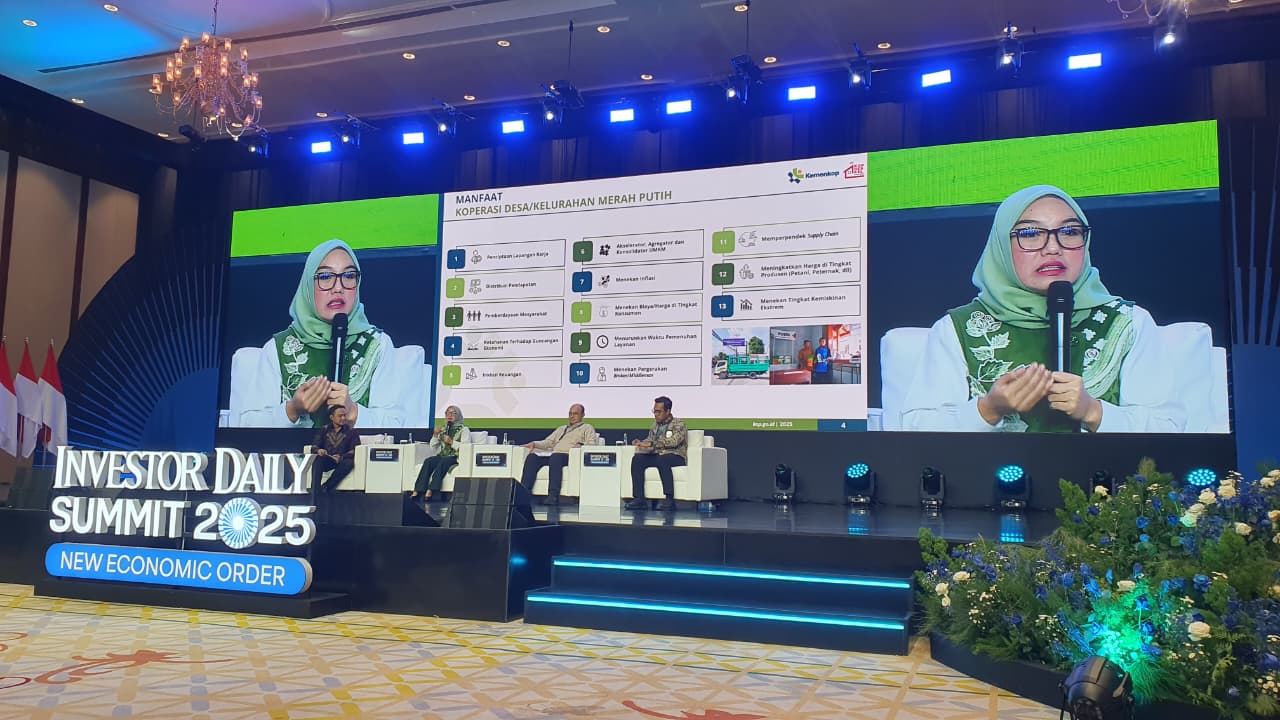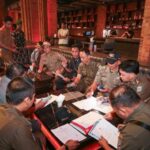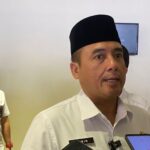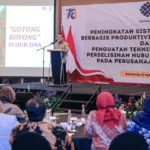The Deputy Minister of Cooperatives emphasized the crucial role of village cooperatives in building Indonesia’s New Economic Order, which aims to be more inclusive, independent, and equitable. This statement was delivered during a speech at the 2025 Investor Daily Summit under the theme “New Economic Order” in Jakarta.
According to the official, the government under President Prabowo Subianto’s leadership positions cooperatives as the central axis of national economic transformation through the establishment of 80,000 Red and White Village/Sub-district Cooperatives (KDKMP). This major program is described as a concrete step toward realizing a people-based economy, strengthening food security, and shortening supply chains that have historically disadvantaged farmers and small businesses.
“The Red and White Village Cooperatives are not just a program, but a strategic movement to build economic independence from the grassroots level. This is a tangible manifestation of the Asta Cita spirit, emphasizing that national development must start from the villages,” stated the official before investors, business actors, and national corporate leaders.
The official reported that by early October 2025, a total of 83,132 KDKMP had been established, with 81,857 of them already having legal entity status. Over 996 thousand villagers have become cooperative members, while another 684 thousand actively serve as administrators and supervisors. “These figures demonstrate remarkable public participation. Cooperatives are no longer old symbols but new economic engines at the local level,” the official said.
The government is also strengthening cooperative governance through the SIMKOPDES digital platform, a real-time data-based system for monitoring the performance and activities of village cooperatives across Indonesia. This platform was developed to enhance transparency, accountability, and operational efficiency of cooperative institutions.
The official explained that KDKMP plays a vital role in building a more efficient people’s economic ecosystem. Through cooperatives, villages can independently manage the distribution of basic goods, savings and loan services, grocery outlets, pharmacies, and logistics warehousing. “Village cooperatives also open opportunities for local investment in energy, housing, livestock, and the digital economy. We want cooperatives to become main players, not just complements,” the official affirmed.
During the forum, the official also highlighted the importance of partnerships between the government, state-owned enterprises, and the private sector to accelerate the strengthening of village cooperatives. Several major companies, including Pupuk Indonesia, ID Food, Bulog, Telkom Indonesia, PLN, Pertamina, Biofarma, and HIMBARA, were mentioned as having established cooperation to support the KDKMP ecosystem through access to financing, distribution, and technology. “Cooperatives are the bridge between the economic interests of the people and the business world. This is a moment for the private sector to join in strengthening the national economic foundation starting from villages,” the official stated.
The official concluded the presentation with optimism that KDKMP will become the main pillar of Indonesia’s new economic order. According to the official, the success of economic transformation is not only measured by macro growth but by how strongly people in villages can become self-reliant and enjoy the fruits of development. “We are building a new economic foundation that does not depend on imports but grows from mutual cooperation and the people’s own productivity,” the official concluded.
Meanwhile, another speaker stated that the Indonesian Young Entrepreneurs Association supports the government’s programs because they are considered grassroots-focused, such as KDKMP and MBG. “KDKMP is not a competitor or a threat; rather, the business world is part of cooperatives and can synergize,” the speaker said.
Another representative from Pupuk Indonesia expressed full support for KDKMP, including for distributing subsidized fertilizer. “The subsidized fertilizer supply chain has been shortened, now going directly from producers partnering with distributors to the handover points, one of which is KDKMP,” the representative emphasized.






